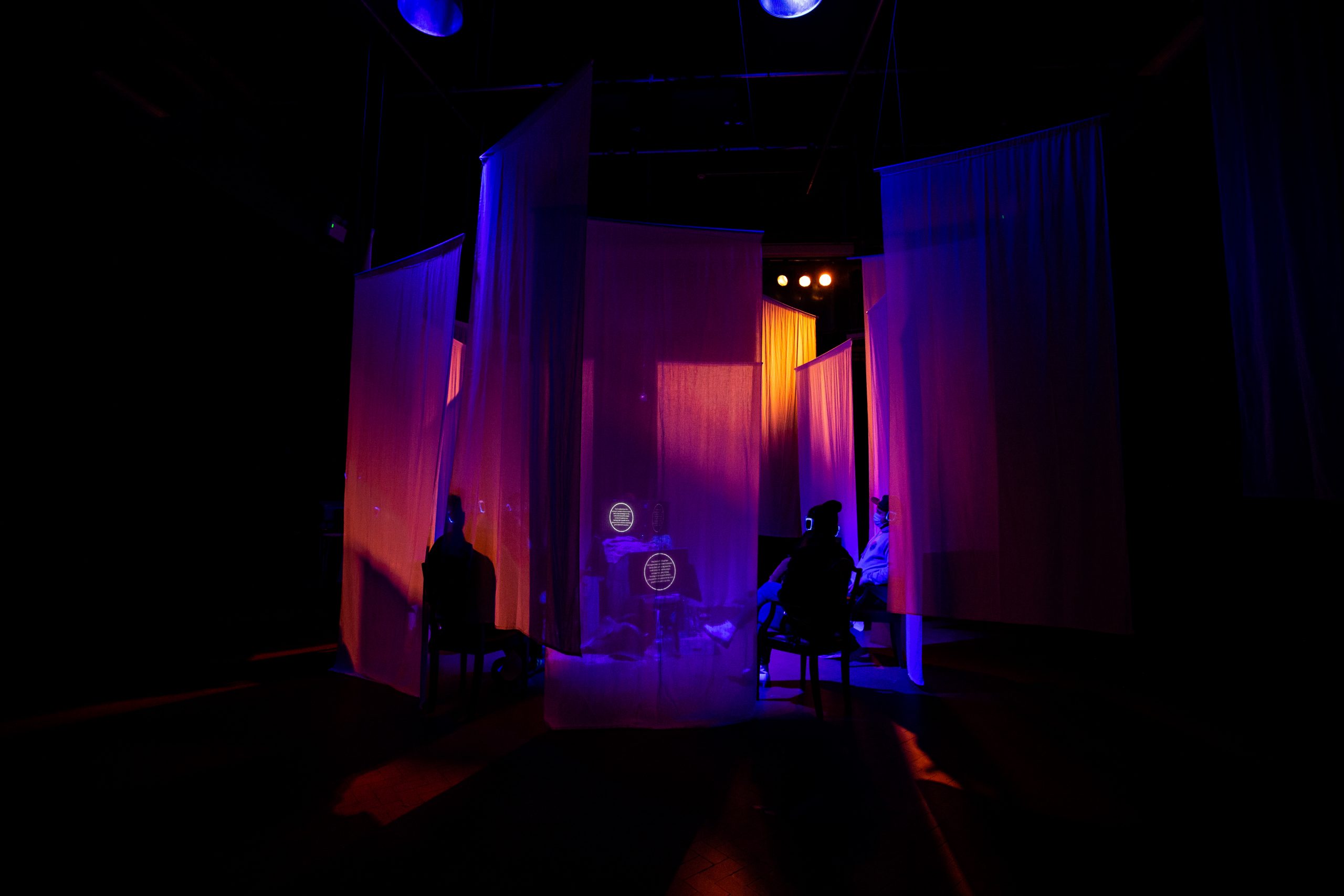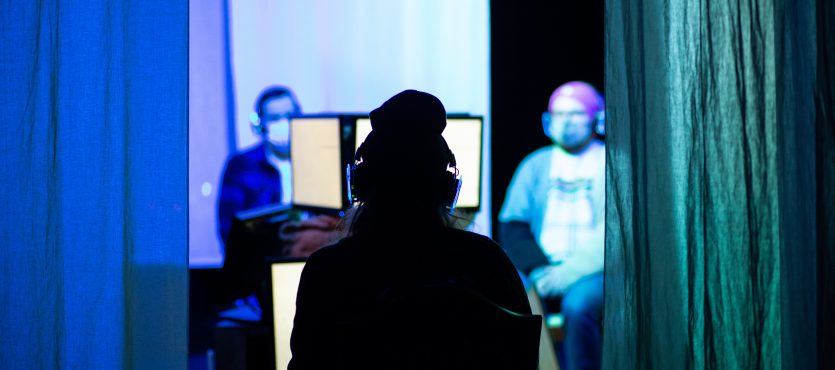
Sophia Stancer speaks to director Eleanor Hope-Jones about her new theatre project that hopes to help survivors of sexual assault feel less alone in their experience.
When you touch someone’s skin, you perform a séance…
The Runaway was safe in the wild west, drinking moonshine and playing poker with her found family of cowboys. Then he joined the gang. A man cloaked in shadow whose ‘touch’ tore their world apart.
Inspired by a true story, Eleanor Hope-Jones’s Séance is a sound installation about coming to terms with a sexual assault. Held at The Station on Silver Street, Bristol, and experienced through headphones in groups of 7, Séance wove narrative poetry, creative captions and original music together to create a fantastical world.
Bristol Women’s Voice asked creator Eleanor about the piece, and its central themes of confusion of bruised friendships, fantasies of revenge and forced self-discovery that follow a sexual assault.
Why is séance an important metaphor for you?
A traditional séance – where a group of people sit in a circle and look at invisible spirits – felt like an interesting concept to reflect some of the themes I wanted to explore in Séance. Themes like speaking, being witnessed and listened to. There’s also something about the intimacy and ceremony of a Séance, when conversations about sexual assault are usually private and stigmatised.
A traditional séance could also be described as a profound experience. And the idea of needing to make a traumatic experience into something profound is something that the speaker explores towards the end of the piece.
Loneliness, and being isolated from friends, is referenced at several points. Why do you think sexual assault is such a lonely experience and how can those who haven’t experienced sexual assault help survivors to not feel this way?
I think sexual assault is a lonely experience because lots of people act like it’s rare and doesn’t happen to lots of people. There’s so much shame around it, and then when you can’t talk to others and share your experiences that shame becomes compounded.
Both people who have and have not experienced sexual assault can support others going through that experience.
I think listening without judgement is really important. Without shock, without anger, without taking up the space the person needs to feel their feelings. It’s important to give them the space to figure out how they’re going to process this experience, even if it’s not the same way you have or might make sense or yours.
I’ve seen some really beautiful moments during the week Coven and Séance were at The Station. Moments where partners or friends really held space for someone who wanted to come because they had experience of sexual assault. I think that’s a great example of helping survivors feel less lonely, by supporting them and being present on their journey.

You spoke of facing your spirits rather from running from them. I think that’s a really important message for us all in many of life’s contexts. In what ways have you faced your spirits and how can others do the same?
To me facing my spirits was about learning to honour them. To accept that at one point I needed those traits to help me survive and they’re not ‘pathetic’ or ‘stupid’ or any other nasty word my brain can think up.
I can show them compassion, whilst not letting them rule my life. It’s radical to have self-compassion in this world, especially towards the parts of ourselves that we perceive as ‘dark’ or ‘ugly’.
Talking to someone you really trust, who will give you the space to figure things out whilst showing you unending compassion, can be really helpful in starting that journey.
I think how you decide to face your spirits is a daily personal choice, like choosing what to eat or going for a walk. There are some days I honour them, and some days I run from them, and most days I try to be as compassionate as I can about that.
How can people access this work if they’re unable to make the live production? Will there be a digital version for people to access or a transcript anywhere?
That’s something we’ll still thinking about. It was always important to me that this work wasn’t shoved into a dark corner of the internet, or be something that someone experienced alone. It’s been designed to be experienced as part of a community. You can’t perform a Séance alone.
What message would you like viewers to take away from Séance?
That they’re not alone. They’re not alone in their experiences of sexual assault, harassment or abuse. They’re not alone in their need to talk about it and make stories about it. They’re not alone in their confusion about whether they could or should share their story. It’s all incredibly human. And there’s not a right answer, just what you need to do on that day.
If you or someone you know has been affected by sexual abuse or violence, or any of the themes in Séance or our interview with Elenore, please follow this link Abuse and violence – bristol.gov.uk for local resources that can provide guidance and support.
We’d like to extend our thanks to organiser Gabi Spiro and Eleanore for inviting Bristol Women’s Voice to attend the live performance.
For anyone wishing to learn more, you can register your interest in hearing about future versions of Séance by emailing info.seance@gmail.com.

